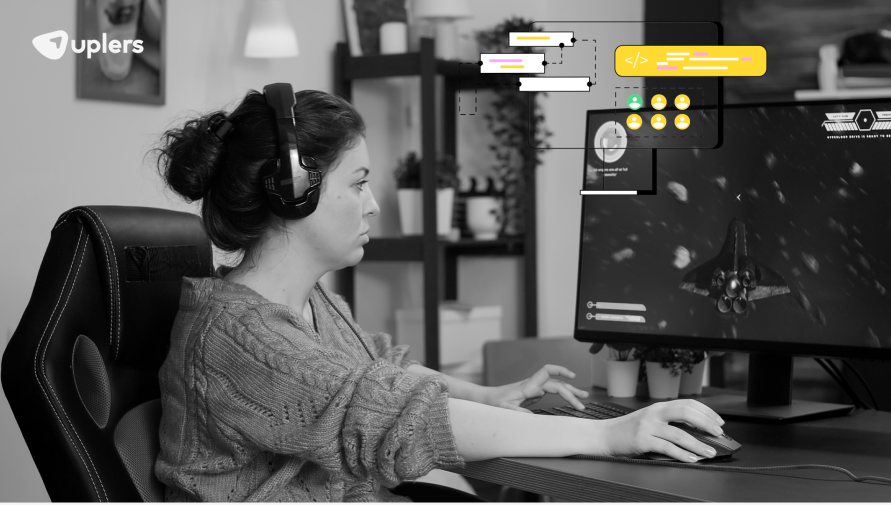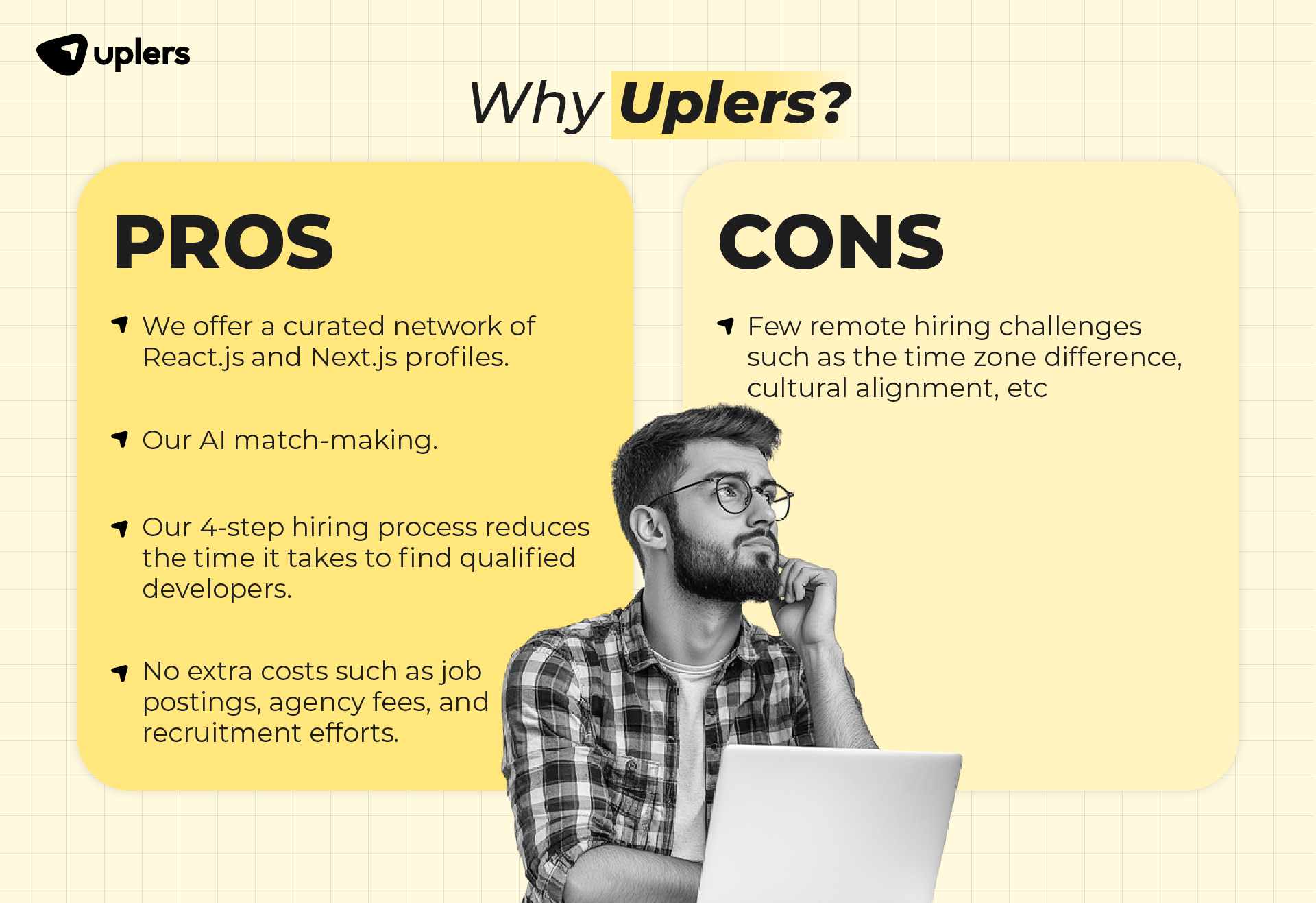How to Hire Game Developers Who Can Bring Your Vision to Life
- Prachi Shah
- July 19, 2025
- 4 Minute Read

When considering successful game development in 2025 it’s not merely restricted to powerful engines, low latency, or pixel-perfect rendering. Games have rather emerged as means to reflect emotional journeys, storytelling mediums, and immersive experiences. They merge mechanics with meaning creating virtual worlds that resonate deeply with the players giving them a real-time experience.
For product companies or startups that are venturing into the gaming space, the way you hire game developers needs to evolve. It’s no longer enough to simply recruit coders who can ‘just build’. You require creative technologists thinking like designers, storytellers, and world-builders. Vision has now emerged as a core hiring requirement instead of a bonus skill. Let’s build a more meaningful context here.
Beyond Code: Hiring Developers with Narrative and World-Building Skills
Unlike most of the hiring managers you might also look for technical fluency when evaluating Unreal or Unity talent. This includes performance optimization, shader writing, networking logic, and other such technicalities. But have you ever wondered what truly separates a good game from a great one?
That’s the invisible layer – story pacing, narrative structure, environmental storytelling, and emotional UX. The best hires in this regard will be the ones who understand the hero’s journey, choice of design, and how to translate emotion into gameplay mechanics. Consider titles like Hades, Inside, or Celeste – widely popular games celebrated not just for visuals but also for their narrative and experiential design. These qualities can’t solely come from writers or creative directors, they come when you hire game developers aligned with your vision.
Onboarding game developers with narrative instincts means hiring talent that can co-own emotional resonance and user engagement, and not just code implementation. These individuals tend to anticipate the pacing issues, understand player psychology, and enhance immersion through subtle programming decisions. This is a key differentiator in today’s saturated market.
Spotting High-Potential Talent Through Game Jams and Indie Projects
A common hiring mistake is over-reliance on traditional CVs or big studio credentials. In the gaming landscape, a solo indie project or a 72-hour game jam is more revealing that years at a AAA company.
Do you know the reason behind this?
It’s because game jams are pressure cookers for creativity, constraint-based designing, and resilience. Candidates with regular participation show initiative, fast learning potential, and willingness to collaborate under tight deadlines – all crucial traits for a high-velocity startup environment.
In the portfolio evaluation stage:
- Seek proof of complete game loops, not merely prototypes.
- Evaluate their handling of narrative, audio, and UI/UX choices.
- Find out what genres or mechanics they prefer and how they have evolved over time.
Evaluating such passion projects will help you uncover creative thinkers, especially when you are hiring remote talent. They won’t be able to prove their skills through in-person interactions.
Cross-Disciplinary Thinking: Why Backgrounds in Art, Psychology, or Architecture Matter
Some most compelling games in the present-day are built by people who didn’t begin their journey in tech. Developers with a background in art, psychology, literature, or architecture bring perspectives that elevate game mechanics into emotional, spatial, or philosophical experiences.
- Artists often contribute to visual coherence and player immersion.
- Psychologists understand motivation loops, reward systems, and behavioral design.
- Architects are often natural level designers, shaping exploration, flow, and space.
The most forward-thinking teams are the ones that blend these perspectives across roles. For instance, if you are seeking to hire unreal engine developers, consider those with experience in environmental storytelling, procedural architecture, or spatial design in VR.
This hybrid thinking steers a competitive edge along with being a nice-to-have. In fact a 2024 report by Unity has revealed that games with cross-disciplinary development teams witnessed a 28% higher retention rate over the first 90 days of release.
Building Remote-First Game Dev Teams Without Losing Creative Sync
The shift to remote work hasn’t slowed game development, it has rather redefined it. Studios like Innersloth (Among Us) and ZA/UM (Disco Elysium) proved that distributed teams can build culturally iconic titles without ever sitting in the same room.
There are several challenges that you will come across when hiring creative collaborators across borders: time zones, asynchronous brainstorming, and loss of “creative energy” from in-person prototyping. So how can you maintain synchronization?
Here are some real-world tactics:
- Use Figma and Miro for asynchronous ideation and level design.
- Set structured “vision hours” for narrative sync across the team.
- Adopt shared lore documents and concept bibles in Notion or Confluence.
- Run monthly demo days—even internal ones—for visibility and morale.
India in particular has emerged as a thriving market for game development experts, with strong contributions in mobile as well as AAA pipelines. Hiring platforms such as Uplers are helping global studios hire game developers from India, who are AI-vetted to be pre-equipped with creative portfolios and remote workflow fluency.
For global hiring managers like you that are evaluating distributed teams, it’s important to know about the cost, skills, and ROI when you hire remote game developers. Doing so will only sharpen your recruitment strategy and also ensure that you invest in the right creative talent for a long-term product value.

Final Thoughts: Game Developers as Creative Partners, Not Just Technicians
For the development of lasting experiences in gaming, you need more than just coders – you need creative partners. Developers with an understanding of the narrative weight, visual flow, and emotional pacing aren’t just implementing features. They are shaping worlds.
Revisit and reframe your hiring approach – don’t simply look for someone to fill a sprint backlog. Rather look for someone who contributes to player joy, emotional storytelling, and design cohesion. Whether it’s about scaling an indie studio or adding immersive layers to an enterprise platform, the right game developer can be a vision multiplier.
As competition becomes more intense in the immersive tech space, it’s a smart move to not only race to hire game developers, but also build co-creative cultures where developers can give their best work. That often begins with where you look and how you think about value.
So if you are ready to explore talent beyond borders, don’t just simply chase the headcount. Chase the chemistry instead and wherever needed trust an IT staffing agency that understands the tech stack as well as the creative context of your game.






